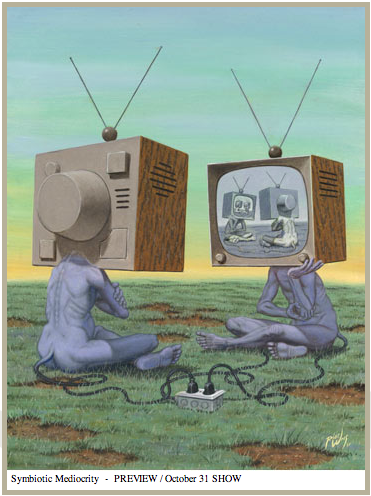It has come to my privileged attention that I often forget that only a small fraction of the world’s population actually has access to the internet and information communication technology. That said, it leads me to wonder what kinds of narratives the internet conveys…I’m thinking along the lines of the ideologies of the White, Euro-centric, and patriarchal.
Returning to Foucault, Balsamo points that “…it does appear that virtual reality technologies are implicated in the production of a certain set of cultural narratives that reproduce dominant relations of power. Perhaps a better approach for evaluating the meaning of these new technologies is to try to elaborate the ways in which such technologies and, more importantly, the use of such technologies, are determined by broader social and cultural forces” (123) and “In short, what the VR encounters really provide is an illusion of control over reality, nature, and especially over the unruly, gender- and race-marked, essentially mortal body” (127). Yet, in looking at Race in Cyberspace, “neither the invisibility nor the mutability of online identity make it possible for you to escape your ‘real world’ identity completely. Consequently, race matters in cyberspace precisely because all of us who spend time online are already shaped by the ways in which race matters offline, and we can’t help but bring our own knowledge, experiences, and values with us when we log on” (5).
I’ve mentioned before that perhaps we are disillusioned into feeding into the craze that is the internet. I must also make a reminder towards Eric McLuhan’s parallels of the traps of information communication technology as Plato’s Allegory of the Cave. But dammit, I love me some internet. It’s just such a strange feeling, like being duped by a shady, yet convincing salesperson. I know that I really don’t have control, in fact, everything I write, post, and look at the internet is all tracked, but then again…it’s all so easy. to. just. succumb.
“By analogy, the fact that virtual realities offer new information environments does not guarantee that people will use the information in better ways. It is just as likely that these new technologies will be used primarily to tell old stories – stories that reproduce, in high-tech guise, traditional narratives about the gendered, race-marked body” (132). Computer, you’ve seemed to trick me again. First, with the illusion of control thing, and now by telling me that the internet in fact is recycling narratives? We live in a binary narrative world with binary modes of thinking, with that in mind, it is ironic to share that early technological communication began with binary codes ie: 1 and o — very sexually symbolic of male and female if you ask me, thus metaphorically gendering technology.
Something else keeps coming to mind. Oh yes, something along the lines of: “I’m just a girl, computers are so confusing with all the gadgets and buttons. I’m scared I’m going to mess something up!” Without furthering this, I will on the surface let you come to your own conclusions of the computer, and hence the internet being gendered (can you guess…male?!).
“Cyberspace and race are both constructed cultural phenomena, not products of ‘nature’; they are made up of ongoing processes of definition, performance, enactment, and identity creation” (10). While the notion of anonymity is thought to be present online, why should race, or gender, or able-ism, or any ism, or if you’re a dog, matter? Gender and race is naturalized and normalized, produced and reproduced, and has taken over technology. That is all.

